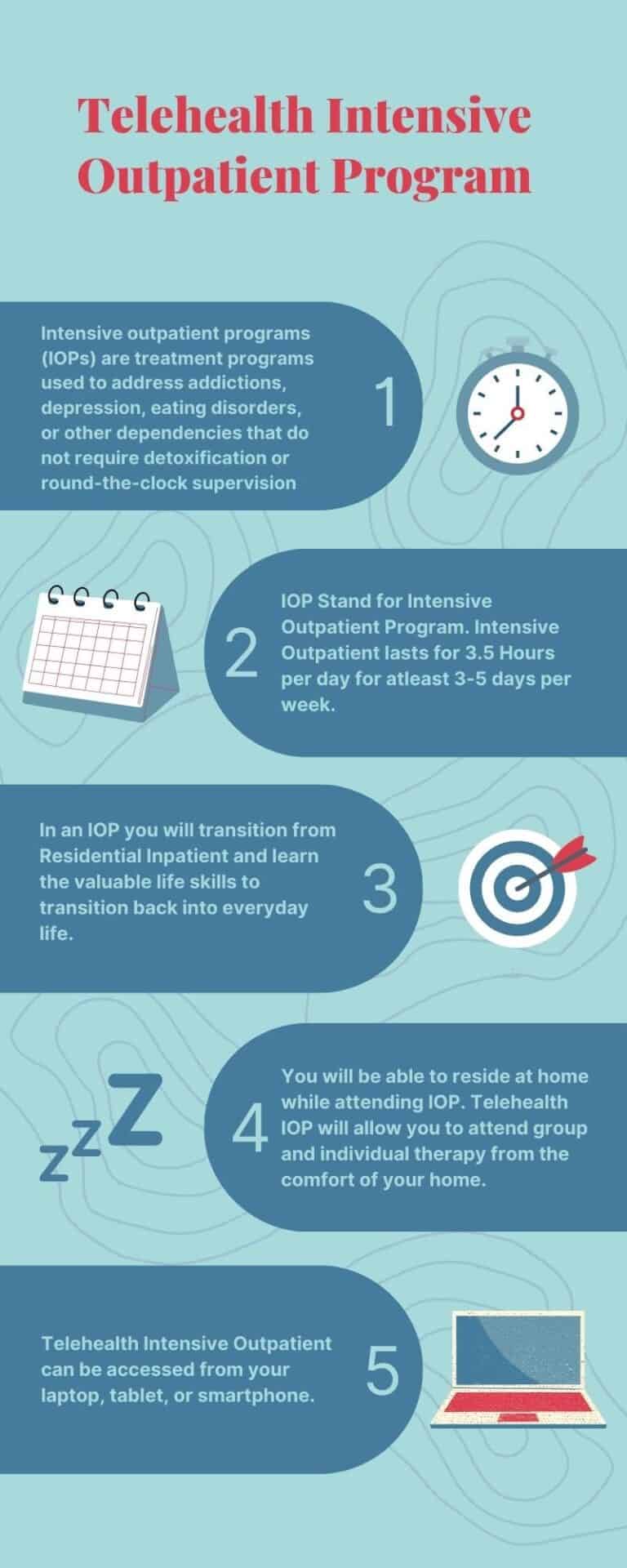Navigating the Complexities of Twin Diagnosis Therapy Within an Extensive Outpatient Program Setting
In the realm of mental health and wellness and dependency therapy, the junction of twin diagnosis presents a nuanced difficulty that demands a detailed and customized strategy. By exploring the intricacies of dual diagnosis treatment within this intensive outpatient context, a clearer path emerges towards holistic and sustainable recovery for those grappling with these linked challenges.
Dual Medical Diagnosis Overview
What is the value of recognizing twin medical diagnosis in psychological health and wellness treatment? It is essential to recognize and address this comorbidity as it can considerably affect the effectiveness of mental wellness therapy.
Comprehending dual medical diagnosis is vital as it requires a thorough and integrated approach to therapy. By acknowledging the interaction between material use and psychological health, doctor can tailor treatments to meet the one-of-a-kind requirements of each person. This holistic strategy not only addresses signs and symptoms but additionally targets underlying aspects that contribute to the double medical diagnosis.
Additionally, untreated double medical diagnosis can result in a cycle of regression and worsening mental wellness symptoms. By acknowledging the intricacy of dual diagnosis and giving specialized care, medical care professionals can support people in attaining long-term healing and boosted psychological well-being.
Tailored Treatment Strategies
Acknowledging the intricate interaction between compound usage problems and psychological health conditions, the advancement of tailored therapy plans is extremely important in attending to the complexities of twin diagnosis in psychological wellness treatment. Tailored therapy strategies are individualized techniques that take into consideration the unique requirements, obstacles, and objectives of people facing dual diagnosis. These plans are developed collaboratively by a multidisciplinary team of experts, including psychiatrists, psychologists, social workers, and addiction specialists, to guarantee detailed and integrated care.
Tailored treatment plans generally include a mix of treatments, drugs, and behavior treatments that target both the material usage problem and the psychological health and wellness condition concurrently. These plans may include cognitive-behavioral therapy, dialectical behavior treatment, medication-assisted therapy, private counseling, group treatment, and family members treatment, among various other evidence-based interventions. By personalizing treatment approaches to specific scenarios, tailored plans can resolve the origin triggers of dual medical diagnosis, advertise long-lasting recovery, and boost general lifestyle for people dealing with co-occurring conditions.
Integrated Care Strategy

By integrating social treatments like household therapy, trade assistance, and neighborhood sources, the weblink treatment becomes much more all natural and customized to the individual's specific demands. In general, an integrated care technique in double diagnosis therapy within an extensive outpatient program setup intends to provide detailed, reliable, and personalized care to people facing co-occurring problems (Intensive Outpatient Program (IOP)).
Challenges in IOP Establishing
In the context of dual diagnosis treatment within an extensive outpatient program, browsing the intricacies of co-occurring material use conditions and psychological health problems presents substantial obstacles. One of the primary difficulties in the IOP setup is the sychronisation of care in between mental health specialists and material abuse specialists to make certain a detailed treatment approach. This calls for effective interaction, partnership, and a deep understanding of how these problems communicate and affect each other.
Furthermore, the ever-changing nature of compound use conditions and mental wellness conditions includes another layer of intricacy - Intensive Outpatient Program (IOP). Clients in an IOP might experience sudden changes in their symptoms or compound cravings, needing punctual intervention and change of treatment approaches. Balancing the strength of treatment and support while permitting clients the versatility to handle their daily duties can be a delicate balance to keep
Moreover, resolving stigma and resistance to treatment within the IOP setup can impede development. Some people might be hesitant to reveal their twin medical diagnosis or may really feel embarrassed, hindering Going Here their interaction in the healing procedure. Conquering these barriers demands an encouraging and non-judgmental environment that promotes depend on and visibility.

Collaborative Professional Efforts

Collective initiatives also expand to regular interaction and details sharing among group participants to guarantee a natural therapy method - Intensive Outpatient Program (IOP). This might involve situation meetings, joint sessions with the patient, or shared paperwork to track progression and adjust treatment methods as required. Additionally, partnership may consist of entailing other healthcare experts such as key care physicians or household specialists to give holistic support to the individual. Inevitably, a joined front of professionals working together improves the efficiency of twin medical diagnosis therapy within an extensive outpatient program.
Verdict
Finally, reliable twin medical diagnosis therapy within an intensive outpatient program setting requires tailored therapy strategies and an incorporated treatment technique. Difficulties may arise in this setting, yet joint initiatives among professionals can help browse these intricacies. By attending to the special requirements of individuals with co-occurring mental wellness and material utilize conditions, IOP programs can provide comprehensive and all natural like support recovery and total wellness.